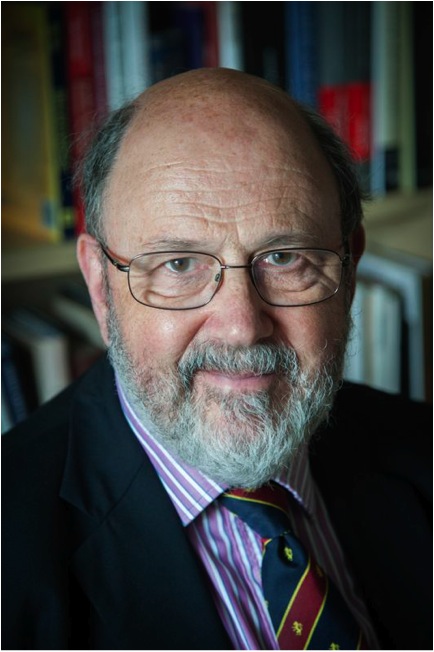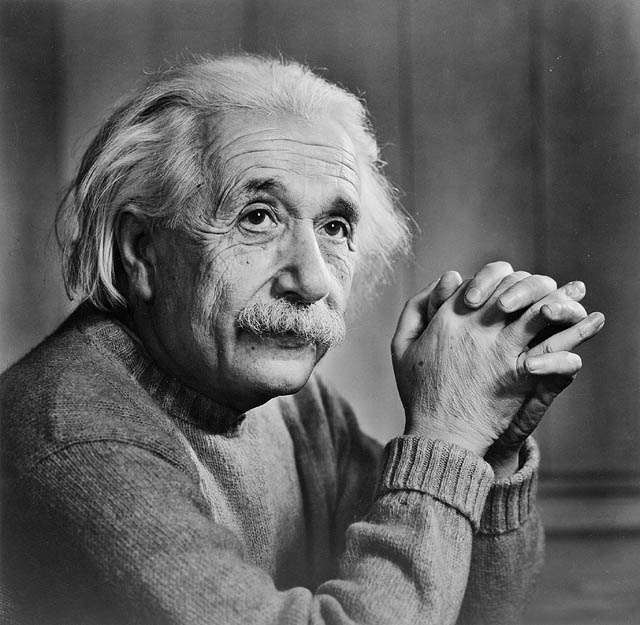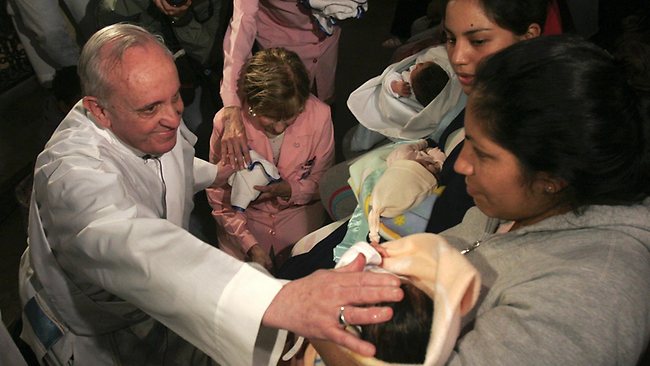Committing to grad school means time, money and, for most of us, anxiety. An early graying head is a sign of a PhD candidate. Despite the cost, many of us enter into this commitment without much deep reflection on the function of grad school. Sure, we consider the end result—a higher pay rate, power to help those who can’t help themselves, accomplishment of our dreams, and so on—but questions of real, ultimate purpose often go unanswered. Why is a higher paying job more desirable? Why should we want to help the poor and oppressed? Who cares about accomplished dreams and success?
To begin to answer these questions we need to ponder purpose. That is, “Why am I here?” If we can answer the quandary of fundamental human purpose and meaning, then answers to all the other questions will begin falling into place. But again, many of us never really think about the “big question.” For some it’s just too overwhelming. For others, the day-to-day routine doesn’t allow time for such consideration. Or maybe, if you’re like me, the question of purpose is always lingering in the background, whispering at every turn, nudging every decision. Whatever the case may be, I hope the following discussion aids in the pursuit of an enriched and satisfying human life.
I’ve done a bit of digging and come up with several “purpose statements.” The following is an assortment of today’s (and one of yesterday’s) most prominent voices in the question of human purpose: the Dalai Lama XIV, N. T. Wright, Albert Einstein, Christopher Hitchens, and Pope Francis I. These quotes are only snapshots—they don’t capture fully the philosophies they represent, but they do, I think, offer clarifying windows into their respective worldviews.
The Fourteenth Dalai Lama (From the Speech of His Holiness the Dalai Lama at the “Forum 2000″ Conference, Prague, Czech Republic, September 1997. http://www.dalailama.com/messages/compassion).

I believe that the very purpose of life is to be happy. From the very core of our being, we desire contentment. In my own limited experience I have found that the more we care for the happiness of others, the greater is our own sense of well-being. Cultivating a close, warmhearted feeling for others automatically puts the mind at ease. It helps remove whatever fears or insecurities we may have and gives us the strength to cope with any obstacles we encounter. It is the principal source of success in life. Since we are not solely material creatures, it is a mistake to place all our hopes for happiness on external development alone. The key is to develop inner peace.
N. T. Wright (From After You Believe: Why Christian Character Matters. Understand that, for Wright, Christians are “royal priests”.)

Royal priests are, in short, to work at revealing the glory of God to the world. That is the task of the renewed Temple. But if, as in John’s gospel, the glory of God is revealed when Jesus of Nazareth goes to the cross as the supreme act of love (John 13.1; 17.1-5), then we should expect that God’s glory will be reflected out into the world when Jesus’ followers learn the habits of mind, heart, and life that imitate the generous love of Jesus and thus bring new order, beauty, and freedom to the world. . . . We are given . . . the promise that the earth shall be full of the knowledge and glory of God, as the waters cover the sea; we are given the resurrection of Jesus to be the start of that project; and we are given the Holy Spirit to enable us to anticipate the former by implementing the latter. To begin on those tasks does not mean we know all and can see exactly what needs doing . . . It means that we are committed to taking the difficult first steps toward acquiring the corporate habits that will be justice-generating, beauty-producing, and freedom-enhancing, and to continuing the many-sided debates as to what exactly those phrases will mean. And, once again, every follower of Jesus will have his or her own unique and interestingly different vocation within this complex overall project. . . .
The task of being God’s royal priesthood in the present, then, is all about worship and mission—a worship and mission which share a heart, the heart that is learning to love God the creator and God the recreator and discovering how to develop the habits that will reflect God’s love into the world and the world’s grateful love back in return. (pp. 234-235)
Albert Einstein (From The World As I See It)

What an extraordinary situation is that for us mortals! Each of us is here for a brief sojourn; for what purpose we know not, though we sometimes think we feel it. But from the point of view of daily life, without going deeper, we exist for our fellow man—in the first place for those on whose smiles and welfare all our happiness depends, and next for all those unknown to us personally with whose destinies we are bound up by the tie of sympathy. A hundred times every day I remind myself that my inner and outer life depend on the labors of other men, living and dead, and that I must exert myself in order to give in the same measure as I have received and am still receiving. I am strongly drawn to the simple life and am often oppressed by the feeling that I am engrossing an unnecessary amount of the labor of my fellow men. . . . The life of the individual has meaning only in so far as it aids in making the life of every living thing nobler and more beautiful. Life is sacred—that is to say, it is the supreme value, to which all other values are subordinate.
Christopher Hitchens (From The Portable Atheist)

The only position that leaves me with no cognitive dissonance is atheism. It is not a creed. Death is certain, replacing both the siren-song of Paradise and the dread of Hell. Life on this earth, with all its mystery and beauty and pain, is then to be lived far more intensely: we stumble and get up, we are sad, confident, insecure, feel loneliness and joy and love. There is nothing more; but I want nothing more.
Note: For Hitchens, life has no universal overriding purpose, and needs none for a satisfying existence.
Pope Francis I (From his recent exhortation, The Joy of the Gospel)

8. Thanks solely to [the] encounter-or renewed encounter-with God’s love, which blossoms into an enriching friendship, we are liberated from our narrowness and self-absorption. We become fully human when we become more than human, when we let God bring us beyond ourselves in order to attain the fullest truth of our being. Here we find the source and inspiration of all our efforts at evangelization. For if we have received the love which restores meaning to our lives, how can we fail to share that love with others? . . .
267. In union with Jesus, we seek what he seeks and we love what he loves. In the end, what we are seeking is the glory of the Father; we live and act “for the praise of his glorious grace” (Eph 1:6). If we wish to commit ourselves fully and perseveringly, we need to leave behind every other motivation. This is our definitive, deepest and greatest motivation, the ultimate reason and meaning behind all we do: the glory of the Father which Jesus sought at every moment of his life. As the Son, he rejoices eternally to be “close to the Father’s heart” (Jn 1:18). If we are missionaries, it is primarily because Jesus told us that “by this my Father is glorified, that you bear much fruit” (Jn 15:8). Beyond all our own preferences and interests, our knowledge and motivations, we evangelize for the greater glory of the Father who loves us.
What about you? Which of these resonates? What is the purpose of the human life, and how might that practically inform decisions toward grad school? Please, do comment. Your input is the most valuable part of this conversation. Without it, there is no conversation.
My wife and I live in South Hamilton, MA where I’m pursuing an MDiv at Gordon Conwell Theological Seminary and she’s serving as Intervarsity staff on campus at Northeastern University. I study Theology and History and Philosophy “as ends in themselves” (in the Aristotelian sense), as well as for a further, more complete end: a deeper understanding of my King and, thus, a more dynamic relationship with him.
I graduated this past spring (2013) with BA in Religious Studies (Hinduism and Buddhism concentration) and a minor in Classical Greek (Homeric/Ionic/Attic/Doric/Koine, appx. 8th BCE – 5th CE). The study of the ancient world in its original context and language fascinates me, especially that of the Early Christians, Ancient Jews and Hellenes.
For more of my writing, see my blog @ www.philotheology.com

Before You Begin, As You Go, For The Future: 10 Markers for Graduate Study Consideration. Mark Eckel, ThM PhD, Professor of Leadership, Education & Discipleship, Capital Seminary & Graduate School, Washington, D.C., http://www.warpandwoof.org
1. Commitment: we must make sure that everyone who will travel this graduate studies road with us has agreed to accompany and stay with us during the time necessary for completion.
2. Finances: like any other bill, we should make sure that we have income, knowing from whence the money comes to pay for the program and our living expenses.
3. Work: graduate school is itself, work: intensively so. If we carry other work-related commitments it is imperative to ask if these augment our graduate school focus, whether in praxis, time, or money.
4. Church: do our pastors know of our direction? have our pastors been asked for their wisdom through questioning whether or not this course of action fits our gifts, will benefit The Church, etc.?
5. Purpose: have we written a purpose statement for our life? have we, with the help of others, identified our gifts, strengths, and benefits this study will bring to our field, our world, for God’s glory?
6. Mentor: do we have a discipler who will be direct and honest about our whole life within the scope of graduate study? have we set a schedule of accountability with this person?
7. Sacrifice: what do we know we must forego (hobbies, interests, time-financial commitments, etc.) while we pursue graduate studies?
8. Reading: are we willing to read huge amounts of information, by a wide variety of authors, acknowledging we will be confronted with differing viewpoints, and we may have to reorder our assumptions?
9. Writing: can we write? will we commit to writing better? will we be willing to accomplish projects ahead of time so that an outside editor could critique our writing?
10. Humility: do we abide by the watchword, “The more we learn the more we learn how much more there is to learn?” are we going to graduate school to fulfill our ego or the prompting of The Spirit who has given us the gifts for our vocational commitment?
Thanks for those ideas, Dr. Eckel. All of those points are fantastic! Can you elaborate on #5? I’m wondering what someone in your position understands as the purpose of our time here.
Thanks for the follow up John. I believe the question, “Why am I here?” haunts everyone. We answer that question based on our own assumptions, our own biases, the place where we begin to think about anything. For me, The Personal, Eternal, Triune Creator, Author of The Bible, answers the question for me. My purpose is to serve Him by serving others.
“It is the glory of God to conceal a matter, but the honor of kings is to search it out.” Proverbs 25:2. Graduate school in the sciences gives me the opportunity to understand the creative mind of God better, to develop the mind he gave me by exploring the works of his hands. It’s an incredible opportunity.
An incredible opportunity, indeed. Just to push a bit further, why do you think that it’s good to develop the mind that God gave you?
I’ve always tied it to the parable of the talents. If God entrusts us with an ability, he expects us to develop and use it for his glory. Also, to the Pauline idea that there are different gifts in the body of Christ (though, admittedly, I’m not quite sure how that plays out in the context of non-spiritual gifts). I know, though, that by developing my mind, I can find better opportunities to use it in ways that honor God and benefit humanity. Also, I feel my work helps me to better understand the wisdom of God in creation–as if I were exploring his thoughts/thought processes. Finally, to paraphrase Eric Liddell’s quote in Chariot’s of Fire, when I research/study/learn, I feel God’s pleasure.
Mark and Andrea, thanks so much for the thoughtful comments.
Andrea, do you mind if I try to wrestle with your question, how “non-spiritual” gifts work for the building up of the body of Christ, in a later post? That’s something I’ve been thinking through for myself and I think it fits perfectly with the conversation of grad school and human purpose.
Mark, if you don’t mind one further push, to which specific biblical teachings/narratives do you point those who are looking for purpose in their careers or grad programs?
John, I would very much enjoy reading a post on that subject, so please write one!
There are so many directions to go with my answer! I would suggest, with C.S. Lewis, that we bear the responsibility of defending The Church. Here is an essay from my website which gives an overview of leadership, specific to this discussion, the importance of protecting others. http://warpandwoof.org/biblical-theological/shepherding-a-biblical-motif-for-leadership/